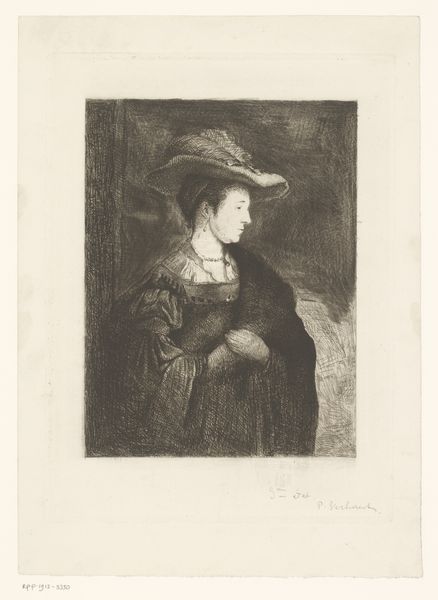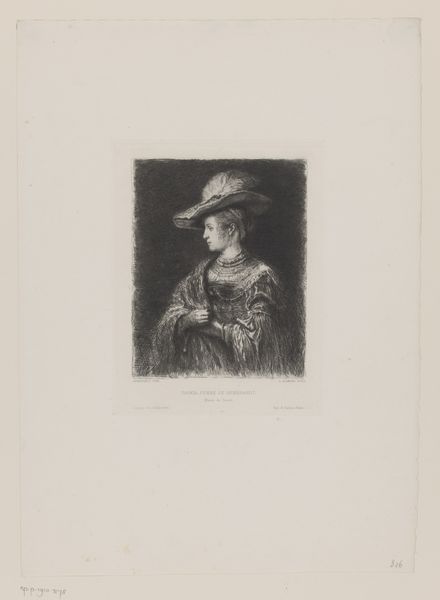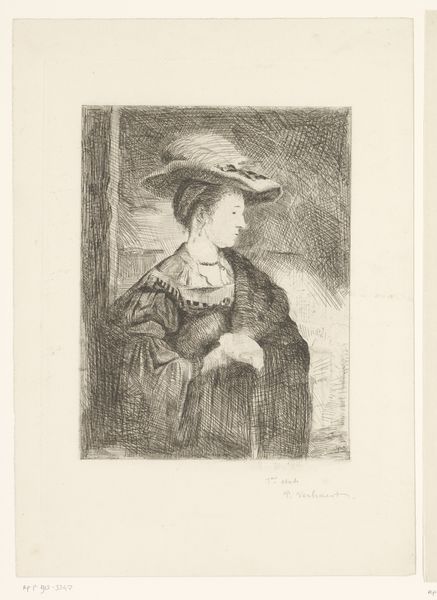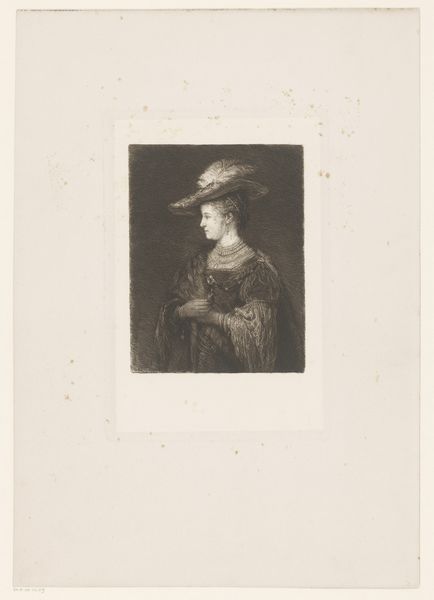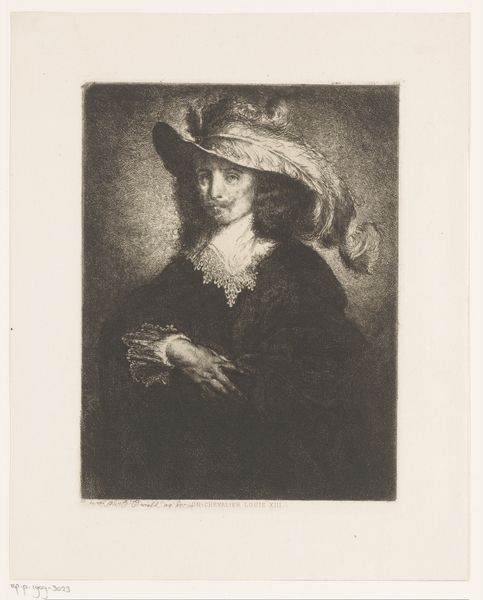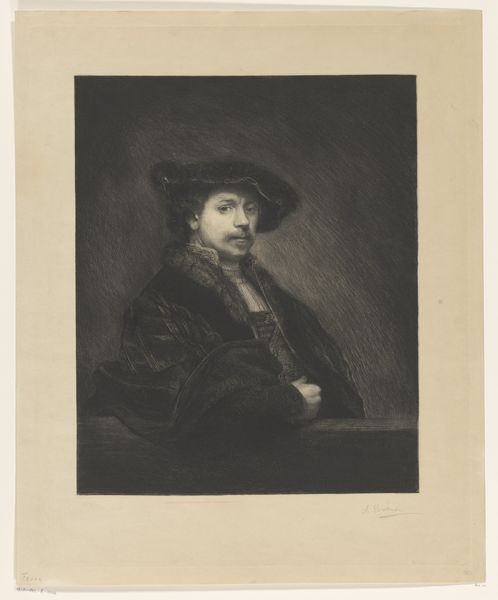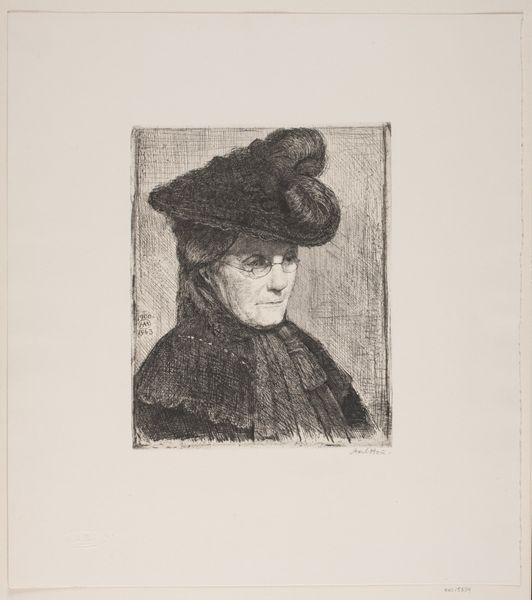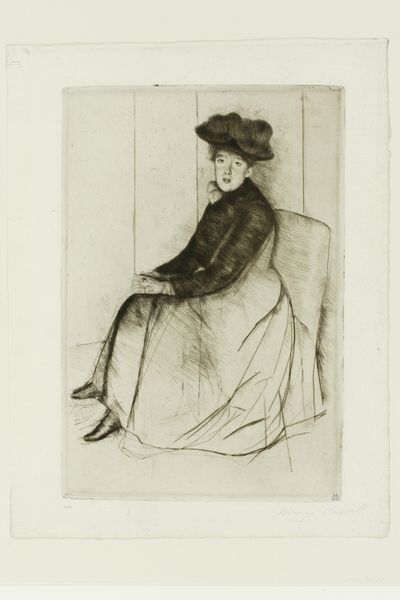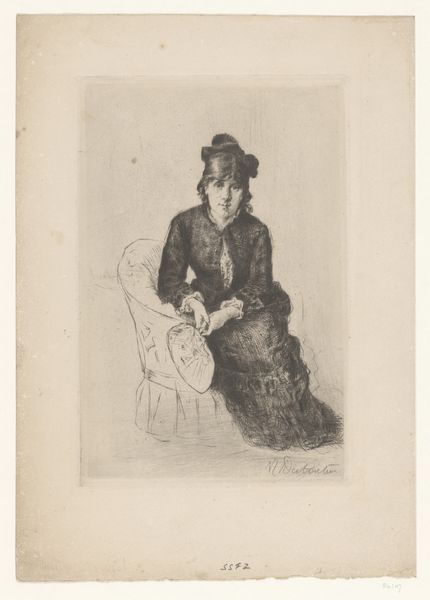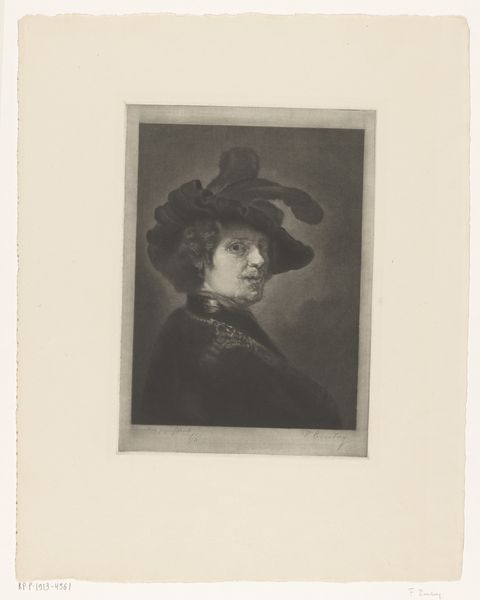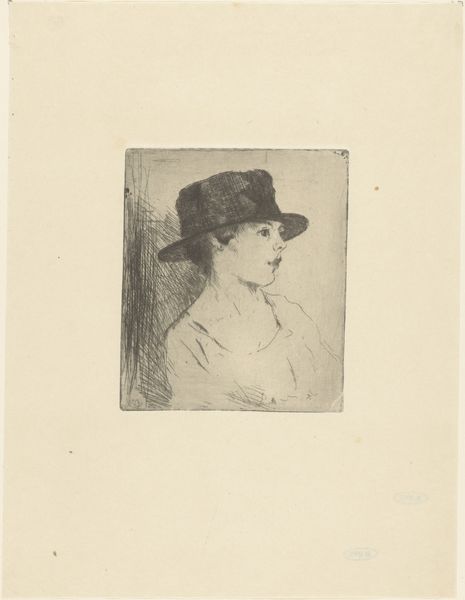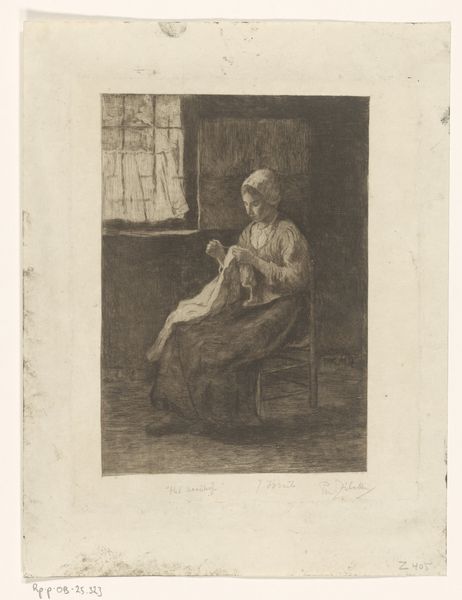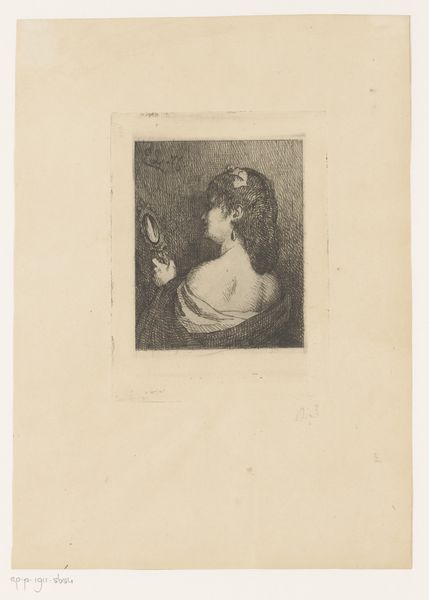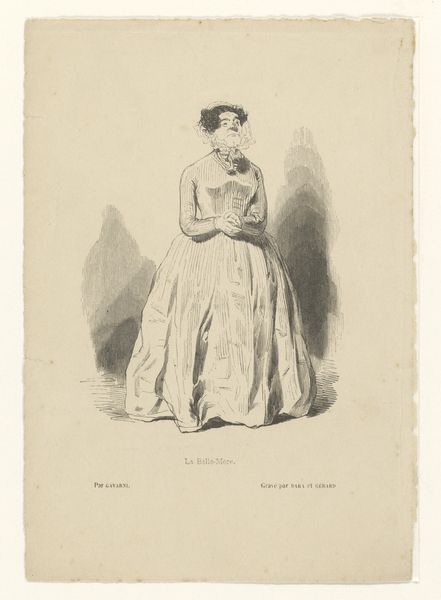
drawing, print, graphite
#
portrait
#
drawing
#
self-portrait
#
dutch-golden-age
# print
#
pencil drawing
#
graphite
#
portrait drawing
Dimensions: height 320 mm, width 240 mm
Copyright: Rijks Museum: Open Domain
Curator: Before us, we have Piet Verhaert's 1884 graphite drawing, titled "Portret van Saskia van Uylenburgh." Editor: There's a quiet melancholy radiating from this portrait, isn't there? The way her gaze is averted and the soft shading creates a sense of introspective sadness. Curator: The artist clearly aims to evoke the Dutch Golden Age through this piece. Verhaert is attempting a dialogue across centuries by reimagining the past and engaging with earlier portraits, effectively re-evaluating representations of women. Editor: The hat is fascinating; its shape immediately speaks to a certain social standing, yet the subtle darkening around the brim hints at hidden emotions, perhaps social constraint? Hats have always acted as symbols in cultural memory and continue to shape perceptions around social performance. Curator: That’s an astute observation. Thinking about historical context, the artistic conventions of that time constrained representations of women to fit prevailing social and political ideologies, reflecting prescribed notions of femininity. Does this portrait break from tradition, or subtly reinforce them? Editor: Maybe both? There is vulnerability here; her posture is rather subdued. But the drawing seems more interested in universal themes of loss, perhaps of innocence, making its relevance strikingly modern. We are still interested in stories and feelings around representations of gender. Curator: And we are still impacted by representations from art history in modern day gender discourses! Editor: Absolutely. Thinking about Verhaert, there is a sensitive reading on themes of time and grief which resonate even in this static image, don’t you agree? Curator: Precisely. This drawing makes a strong case for examining how earlier portraiture continues to affect representation. Editor: Yes, "Portret van Saskia van Uylenburgh," becomes a reminder that even revivals are never really just copies. They carry with them the echoes of then and the sensibilities of now.
Comments
No comments
Be the first to comment and join the conversation on the ultimate creative platform.
